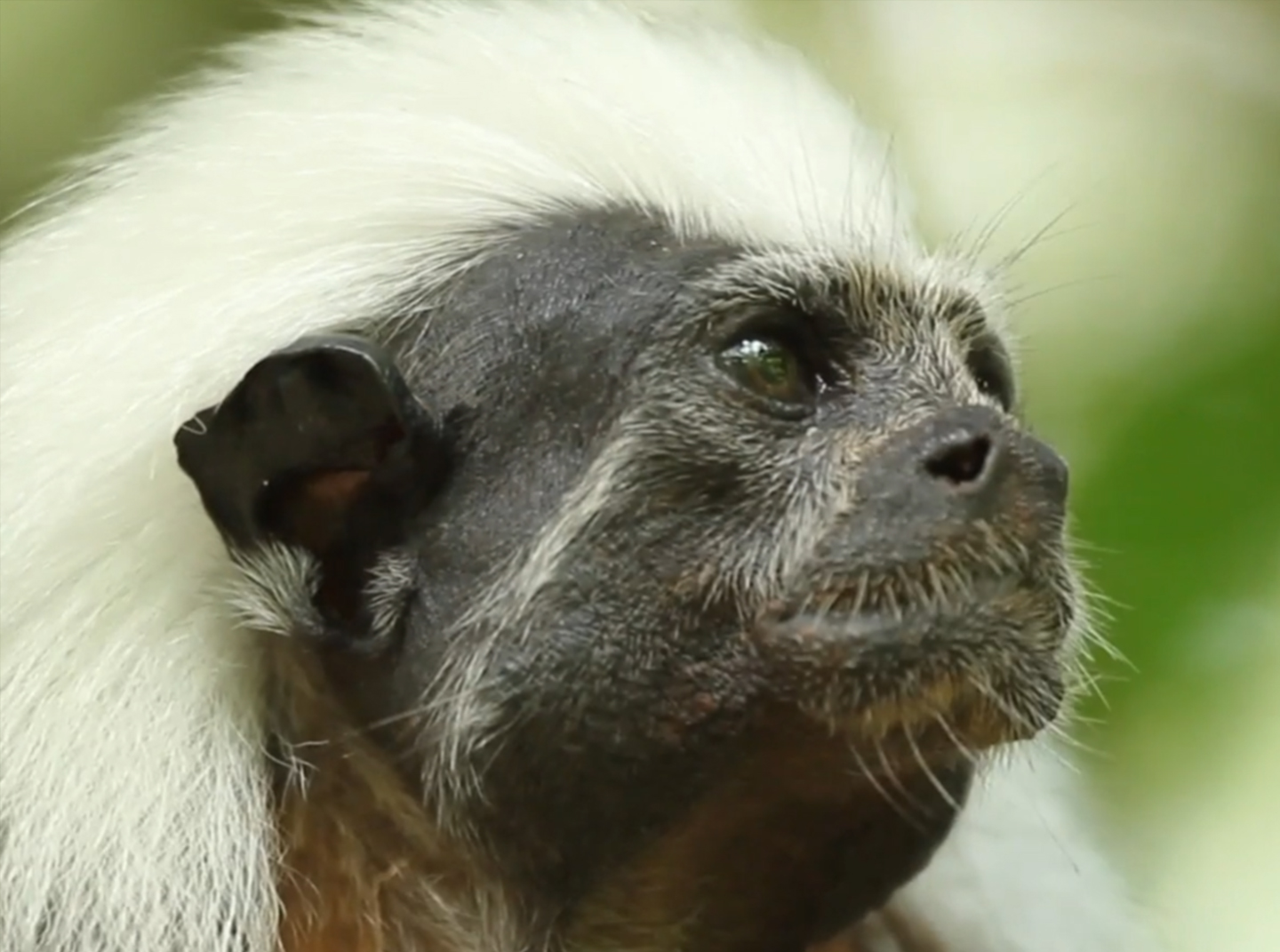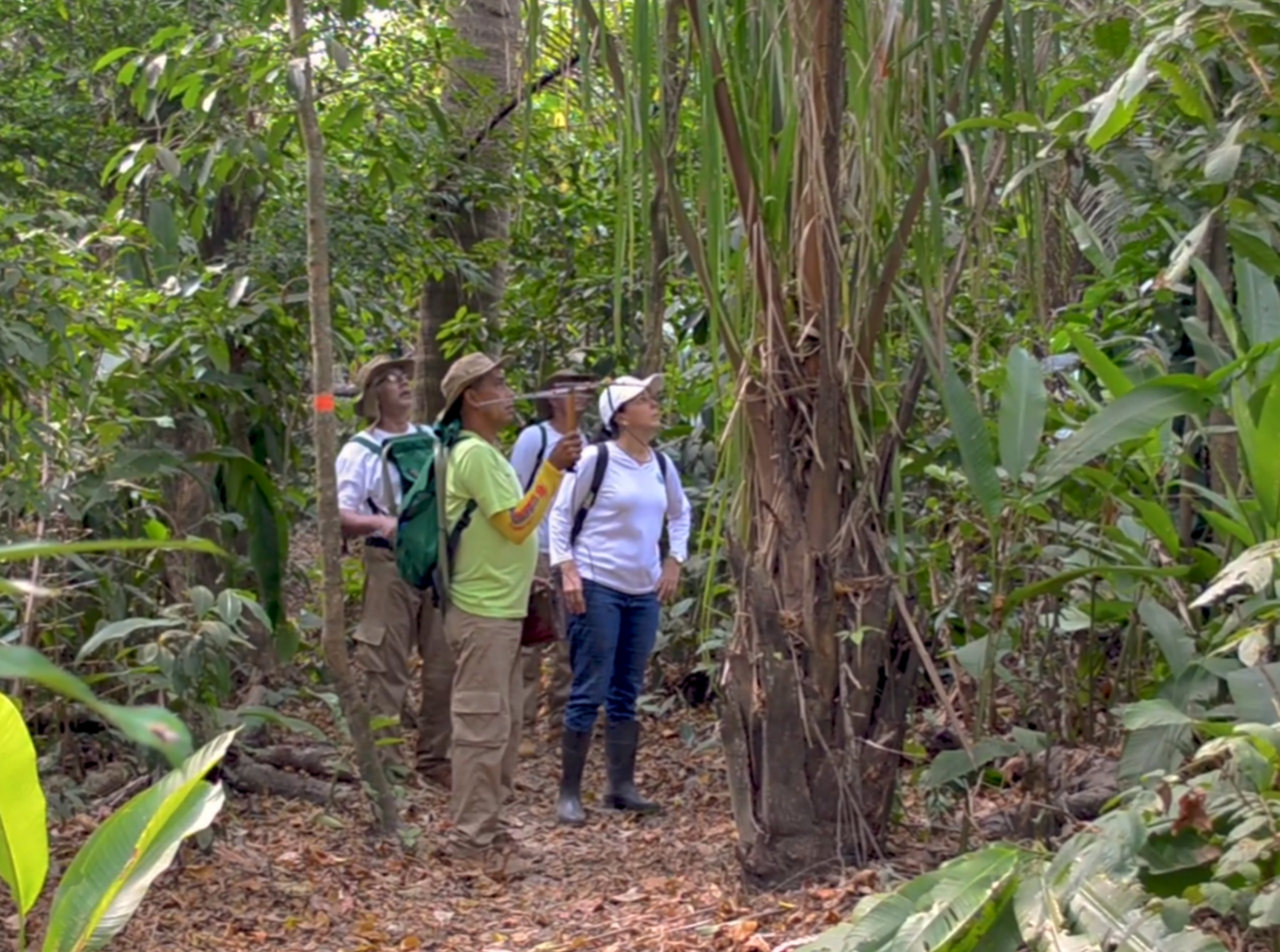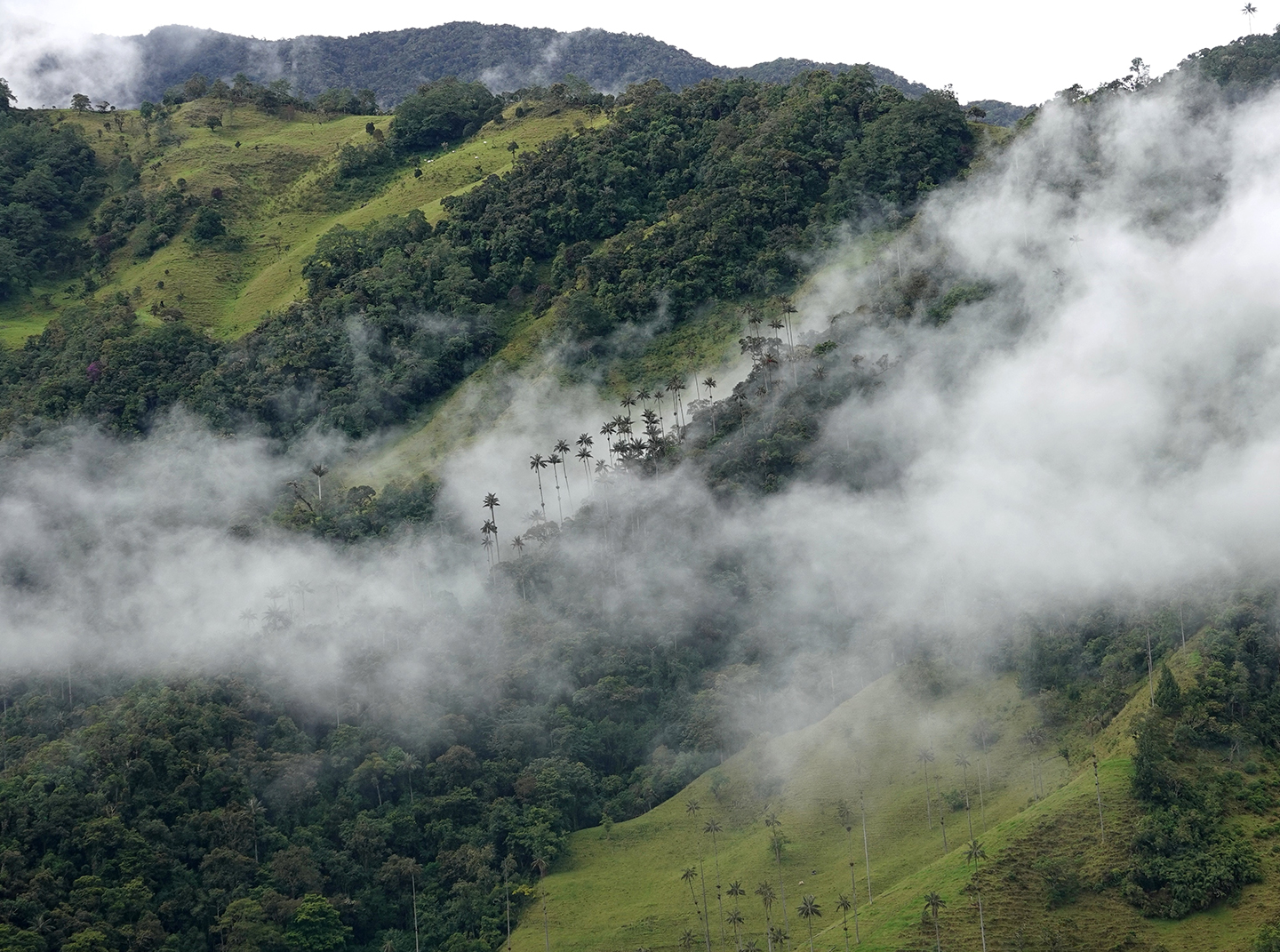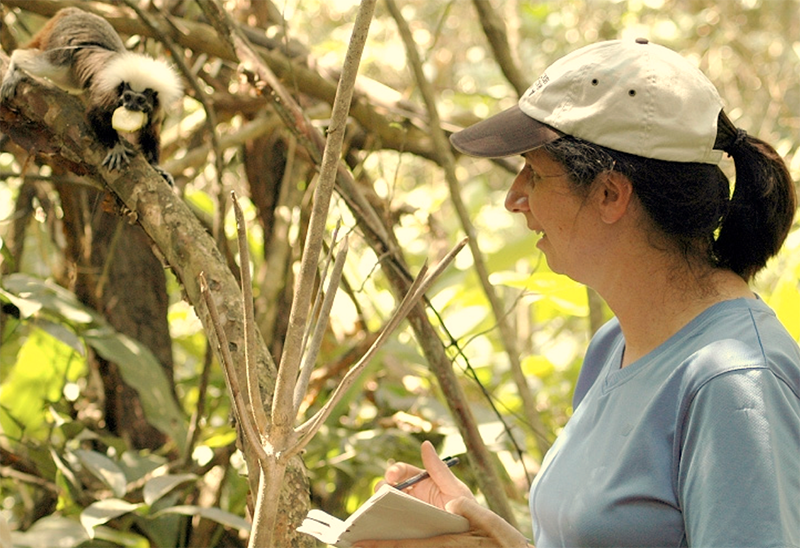Conserving Colombia’s cotton-top tamarins
Using the Conservation Standards to improve conservation practice in Colombia
Second place in the 2018 Case Study Competition
by Fundación Proyecto Tití
One of the smallest primates in the world and found only in the tropical forests of northern Colombia, the critically endangered cotton-top tamarin faces deforestation and the illegal pet trade as its main challenges to survival. Cotton-top tamarins are a critical component of complex ecosystem of the tropical forests of Colombia serving as seed dispersal agents, pollinators, and prey for a myriad of species found in their environment.
Proyecto Tití is committed to guaranteeing that cotton-top tamarins can have healthy forest to live in and that local communities can prosper while protecting the natural resources we all need to thrive. Through efforts to protect and restore forests, engage communities in education and sustainable development programs, and monitor the health and well-being of cotton-tops, Proyecto Tití has created a conservation program that is having a positive impact on wildlife and people.
The Conservation Standards have helped Proyecto Tití design and create realistic and achievable goals through better project design and monitoring.
“The Conservation Standards are a very useful tool to plan your actions, to plan your goals, and the Conservation Standards help you build the steps or the road to get there. It took a lot of effort in the beginning, but then it becomes like second nature, and everything in your organization starts revolving around the strategies, the results chains, the indicators, and the goals you want to achieve.” – Rosamira Guillen, Executive Director

Cotton-top tamarin
This one-pound tamarin gets its name from the large white tuft of hair on top of its head.

Wildlife research
Proyecto Tití uses various research methods to study the species, including radio telemetry which allows them to locate study groups of animals in the forest. Our long-term field studies have led to new insights into cotton-top tamarin ecology.

Colombian tropical forest
The cotton-top tamarin lives in tropical forests in northern Colombia which are challenged by deforestation.
More about Proyecto Tití
Proyecto Tití has been involved in conserving cotton-top tamarins in Colombia for more than 35 years and maintains the longest running field study of cotton-top tamarins in Colombia. In collaboration with partners and regional authorities they have helped to protect more than 5,000 ha of forests for cotton-top tamarins and in 2015 Proyecto Tití established Los Titíes de San Juan Forest Reserve (480ha). Los Titíes is home to their forest restoration efforts and is where we have our tree nursery that supplies more than 50,000 seedlings that are planted in our restoration sites each year. They work with local farmers to create forest corridors that provide opportunities for wildlife to move safely through the region while communities gain added economic benefits by protecting their forests. As communities become more engaged through their education and outreach programs, they see a strong sense of local pride and commitment to protecting cotton-tops. By creating more opportunities for communities to gain economic benefits by protecting cotton-tops and their forest habitat, they strive to prioritize cotton-top tamarin conservation in the lives of many.

Proyecto Tití remains steadfast in their dedication to the preservation of cotton-top tamarins. Through their collective endeavors, they are fostering a future where cotton-top tamarins thrive, their habitats flourish, and communities find sustainable livelihoods that harmonize with nature.
Download CS
The Conservation Standards is the product of inputs, field tests, and discussions among members of the Conservation Measures Partnership (CMP), which has final editorial authority over the Conservation Standards. Substantial input was also provided by members of the Conservation Coaches Network (CCNet) and other CMP partners.
Photo Credit: Felix Cybulla
Support CS
The biodiversity conservation community is tackling large, complex, and urgent environmental problems where the stakes are high. However, we don’t have a fully functional system to assess the effectiveness of our actions. Without more rigorous measurement of effectiveness and disciplined recording of our efforts, we cannot know or demonstrate that we are achieving desired results.
Photo Credit: Felix Cybulla
Our Collaborators
Every organization, agency, project, and individual has its own preferred set of terms. There is no right answer – the most important thing is that the members of your project team and the people with whom you work have a clear and common understanding of whatever terms you choose to use.
Photo Credit: Chris Scarffe
Contact Us
To inquire about supporting Conservation Standards (CS) or for general inquiries, please contact us at CMPinfo@ConservationMeasures.org
Photo Credit: Nature Conservancy of Canada
